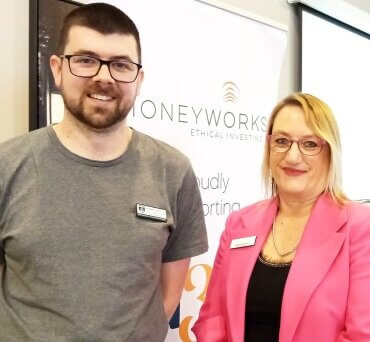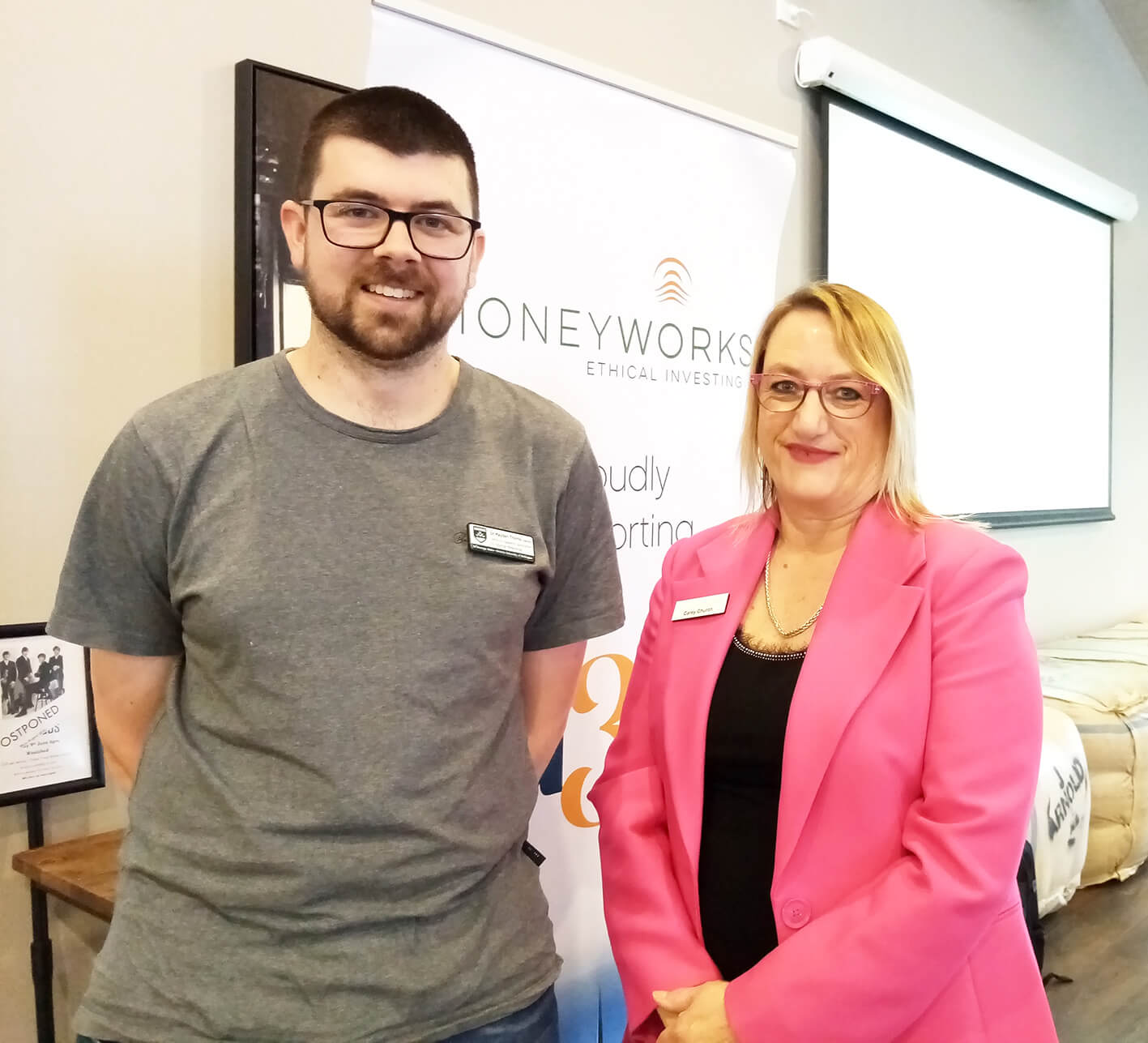

Speaker Dr Hayden Thorne and Cambridge U3A co-founder Carey Church at last week’s meeting.
The lack of accountability and waning legitimacy of the United States Supreme Court should be of concern to New Zealand and the world, says Wellington-based academic, Dr Hayden Thorne.
Speaking to a packed University of the Third Age (U3A) meeting in Cambridge last Friday, Thorne described the US Supreme Court as a white, elitist institution, non-representative of the wider US population. It was a powerful body comprising nine non-elected judges who self-govern and had the power to overrule other arms of US government.
The Supreme Court is making decisions that are increasingly unpopular and out of touch with most of America’s people, he said, and give shrinking recognition to the doctrine of precedence that underpins most countries’ legal systems, including New Zealand’s.
“The current Supreme Court is dismantling precedence at an alarming rate,” he said. “We have seen that recently in the overturning of the Roe v Wade abortion laws, with gun laws and the student debt issue. Decisions over the last couple of years have undermined legal rationale. Public opinion is often not taken into account. In a way, the Court has become a kind of counterweight to democracy.”
He said of the 116 Supreme Court justices who have served throughout its history, 112 have been white, six have been women (four serving currently), 92 have identified as Protestant and 15 as Catholic. An atheist has never been appointed. Only 49 of the 116 have been law school graduates, and 40 of those have come though the elite universities of Harvard, Yale and Columbia.
“Nothing about the Supreme Court is diverse, and where they have attempted in recent times to introduce diversity, the appointees still come from the same elitist background. It does not represent today’s society. How legitimate is an institution that is made up of a very small proportion of society and is answerable to no-one?”
The Court works to a political agenda, driven principally by ideology, he said. The political party of a sitting US President appoints each judge whenever one of the nine retires or dies. Most appointed since the mid-1950s were appointed by Republican presidents, a number that is disproportionate to the number of years Republicans have served in office.
“That is not to say all Republican presidents have been deeply conservative, but it tells us where the balance of the court has sat for the last 60 to 70 years. In the late 1960s to early 70s the court was quite centrist – decisions were made on the merits of the case. There are no real centrist Supreme Court justices anymore.”
He said former President Donald Trump appointed three justices to the Court, a very rare occurrence.
Dr Thorne has a background in law, history and political science. He recently completed a PhD at Te Herenga Waka Victoria University of Wellington in line with his interest in the post-WW2 US Supreme Court, the role lawyers play in the American constitutional system and their ability to influence the Court’s decisions.
He said the Supreme Court was established by the US Constitution in 1789, tasked initially with considering what the law was and what power the court had.
The changes seen were worrying, he added, and their far-right and deeply religious views were spreading around the world.
“New Zealand needs to be concerned. It is an issue when the US, a country that rates itself as a world-leading democracy, has a body of nine unelected powerful people who can make decisions affecting the lives of everyday people. That’s not democracy in my view.”








